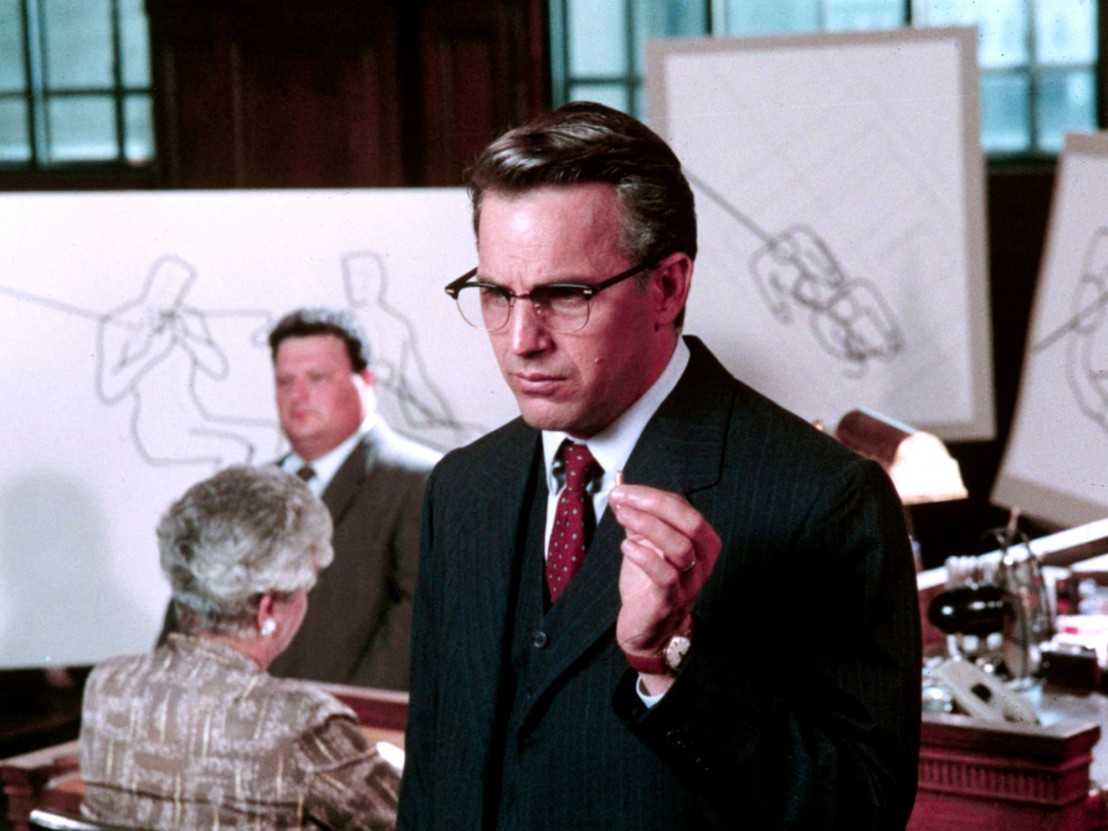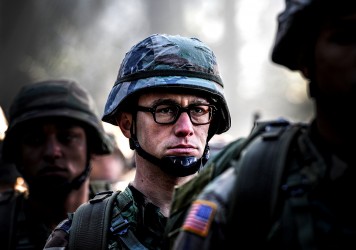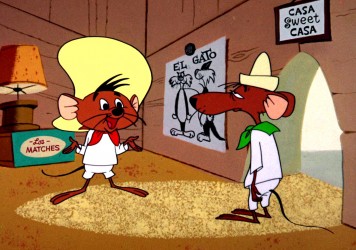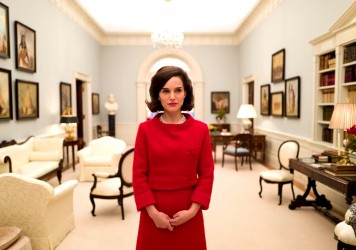
Subtle as a stomach ulcer, paranoid as hell, and liberal with whatever the actual truth might be, JFK nevertheless remains Oliver Stone’s masterpiece. The director is back this month with Snowden, his biopic of the eponymous NSA whistleblower, although he hasn’t been in true firebrand mode for a while. Regardless of whether or not Stone’s latest is capable of reigniting the sound and fury of his best work, it’s unlikely to top what he achieved with JFK – a manic, exhilarating opus which drew incredulity and disdain even before it was released.
The film, a more than three-hour sprawl through New Orleans District Attorney Jim Garrison’s (Kevin Costner) attempts to bring somebody to trial for the assassination of the titular President, ostensibly amounts to a melding of the countless conspiracy theories that have been suggested since President Kennedy was murdered in Dallas on 22 November 1963. As a result, JFK was heavily criticised, primarily by those who couldn’t believe the director had apparently been so blasé with ‘the truth’; Washington Post National Security correspondent George Lardner castigated Stone for being “sloppy with history,” while legendary broadcast journalist Walter Cronkite berated Roger Ebert for his appraisal of a film that, in Cronkite’s view, didn’t contain a “single shred of truth.”
But while it’s certainly true that JFK’s factual compass is all over the place, it remains sharply on point. If it’s historical accuracy you want, read a history book. If you want to understand a nation’s anxieties about how its government behaves made manifest and turned into art, watch JFK, where Stone and his crew – namely co-writer Zachary Sklar, DoP Robert Richardson and editors Joe Hutshing and Pietro Scalia – brilliantly highlight the doubts and fears held by millions of US citizens.
From the frenetic editing, to the shot selection – whether tightly locked on Jack Lemmon’s eyes or framing Garrison and his mystery informant, X (an uncredited Donald Sutherland), on a park bench beneath a vertiginous and ironic Washington Monument – to the crazed brilliance of an ensemble cast that includes Tommy Lee Jones, Joe Pesci and John Candy, to John Williams’ score, every aspect of the film is designed to amplify the dramatic tension.
Controversially, the film also helped pave the way for the Assassinations Records Collection Act of 1992 aka the JFK Records Act. During interviews for his new book, ‘The Oliver Stone Experience’, author Matt Zoller Seitz was told by Stone that he had received a death-bed confession from one of Kennedy’s security team, claiming that Kennedy’s murder was an inside job and that, “somebody from his own team… had fired on the President.” Such conspiracy theory-fuelling revelations are 10-a-penny, of course, and although Stone has called it “plausible” and “very authentic”, it’s unlikely that we will ever know the full details of what happened that day at Dealey Plaza.
If that seems a given, then think of how much less we might know were it not for Stone’s film. Not necessarily less about the intricacies of the case or the key players involved, but certainly less about ourselves and Western society, where our faith in democracy is tested almost daily by a government seemingly intent on withholding certain sensitive information, atrophying our liberty in the process. Quoting American naturalist Edward Abbey, Garrison states that, “a patriot must always be ready to defend his country against his government.” JFK, in its own hyperbolic way, does just that.
Published 13 Sep 2016

By Elena Lazic
Despite Joseph Gordon-Levitt’s best efforts, Oliver Stone’s whistleblower drama feels completely disconnected from reality.

The beloved Looney Toon is set to make his big screen bow courtesy of Warner Bros.

Natalie Portman gives a stunning central performance in this emotional portrait of the iconic First Lady.